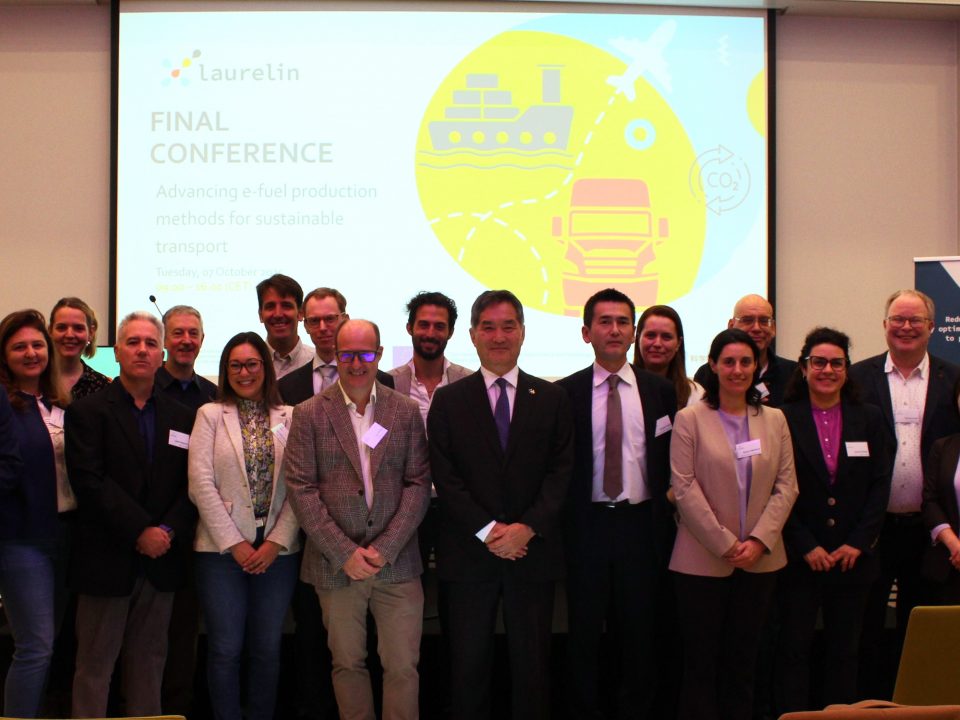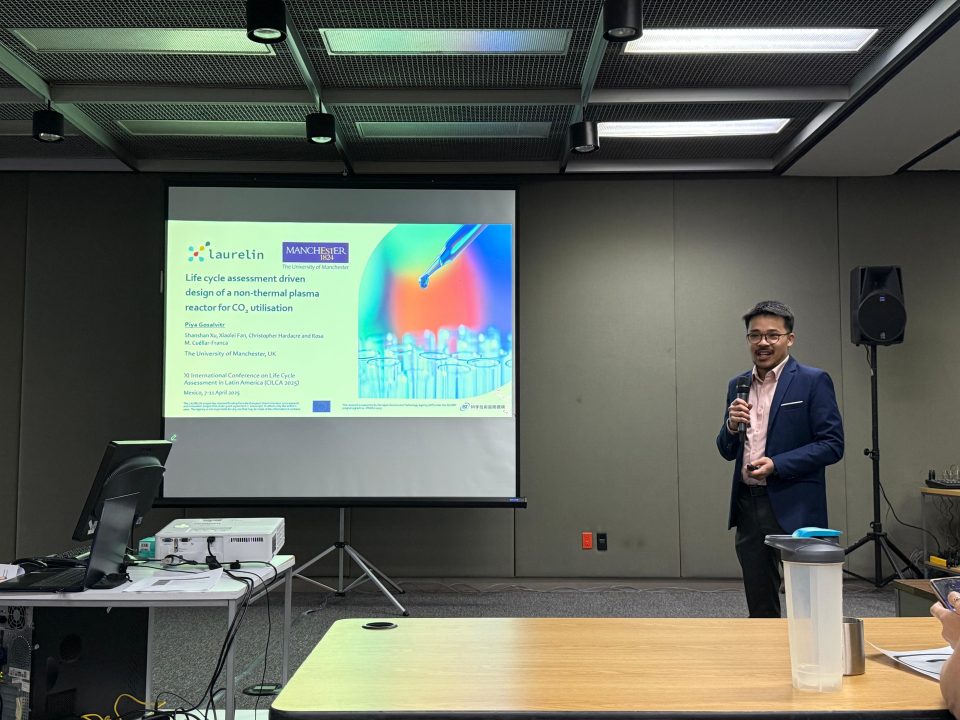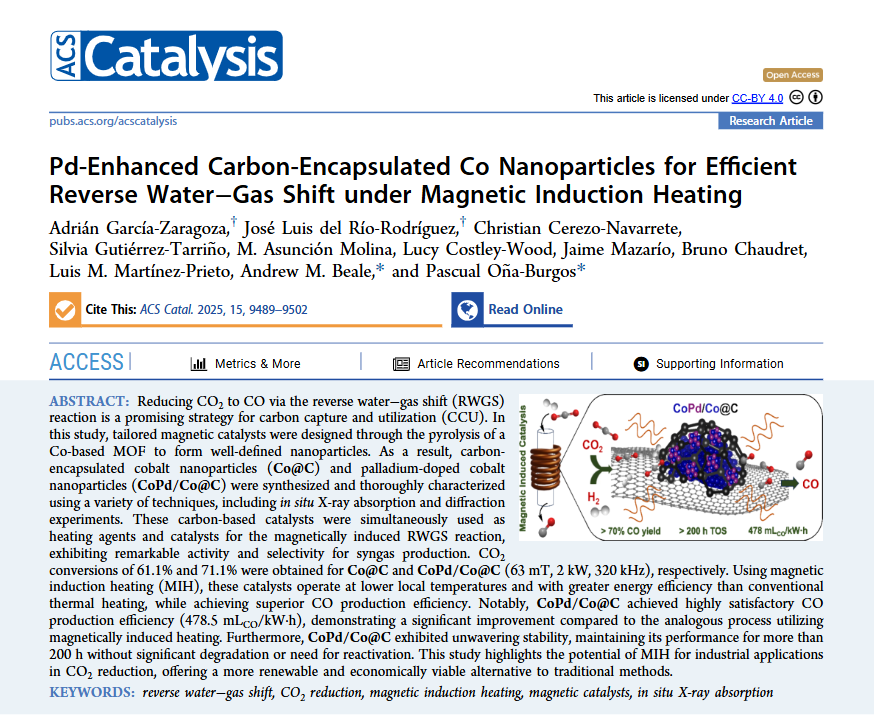Interview with our partner University College London (UCL)
Why did the University College London (UCL) join the LAURELIN project?
At University College London (UCL), we are firmly committed to directing a portion of our research towards combating climate change. With the LAURELIN project, UCL embarks on a bold mission to address one of the greatest environmental threats of our time: CO2 emissions.
Imagine a future where CO2, instead of being seen as a problem, becomes an innovative and sustainable solution. This is precisely what LAURELIN aims to achieve: a revolutionary technology that converts CO2 emissions into valuable products such as renewable fuels. In this context, methanol, produced from captured CO2 and green hydrogen, emerges as a hero in the fight against climate change.
However, this path towards a greener future is not without its challenges. For direct CO2 hydrogenation to methanol to become an industrial reality, we must confront significant obstacles such as chemical selectivity and energy requirements. This is where UCL, alongside LAURELIN partners, makes a difference, leading research that aims to open new frontiers in the field of renewable fuels by introducing a new generation of catalyst systems tailored to advanced reactor systems which use microwave radiation, magnetic induction, and non-thermal plasma as alternatives to conventional thermal energy.
UCL joined the LAURELIN project not only to address the challenges of the present but also to forge a brighter and more sustainable future for generations to come.
What are the activities undertaken by the University College London (UCL) in the framework of the project?
The design, development, and implementation of a new generation of catalyst systems requires a deep understanding of the relationship between their structure and the function they perform in reactions. Our research group, based at the Research Complex at Harwell (RCaH), specializes in catalysis and solid-state chemistry, focusing particularly on the analysis of catalytic reactions under in situ and operando conditions. The characterization of catalysts using operando techniques is complex, but is essential for understanding and enhancing their performance under real reaction conditions.
As part of the framework of the project, we dedicate ourselves to studying the behaviour of catalysts provided by our partners employing a wide range of spectroscopic and scattering methods, utilising national research facilities. Our studies enable the design of more robust and efficient catalysts against deactivation, with lower activation energies or better regeneration capabilities.
Additionally, our laboratory is equipped with state-of the-art instrumentation for characterisation and measurement of catalysts and their activity, and we have access to the both RCaH equipment and the world-leading facilities across the Harwell campus.
How important is the cooperation with your (European/Japanese) partners for the development of catalyst systems for the synthesis of renewable methanol?
At UCL, we understand that collaborating with our foreign counterparts is highly beneficial, not only because large and strategic research partnerships have a greater chance of success, but also because expanding the international footprint of collaborations helps ensure that our research has tangible benefits for civil society and the environment.
LAURELIN is built on the close cooperation of European countries (Spain, the Netherlands, Germany, Belgium, the United Kingdom) with Japan. Our partners, international leaders in catalyst synthesis and testing, pose the questions that we, with our expertise in functional materials characterization techniques (in-situ and operando analysis), seek to answer. This synergy allows LAURELIN to be the perfect crucible for advancing the state of the art and strengthening the technology used in the production of methanol as a renewable fuel.
What are the challenges that you have identified to fulfill LAURELIN’s objective (the development of multifunctional and heterogeneous catalyst systems for efficient synthesis of renewable methanol)?
From the characterization perspective, the challenges of our research are diverse, reflecting the complexity of understanding and optimizing catalytic processes under in situ or operando conditions.
One of the main challenges lies in understanding the correlation between catalytic activity and structure, as well as identifying active species and possible reaction pathways. This involves conducting analytical experiments to investigate the nature of metal species using advanced techniques, along with AI assisted data processing and analysis. Additionally, we must address the evaluation of structural transformations occurring during catalyst activation or operation. Finally, we need to obtain information on the active sites and surface intermediates under reaction conditions, which requires a careful integration of different characterization techniques that allow us to acquire precise data on the catalytic cycles and explain the general catalytic behaviour for the design of both active and selective catalysts. This requires novel solutions as non-thermal plasmas and magnetic induction reactors are not commonplace, and being able to perform these reactions whilst simultaneously measuring the sample with high power X-rays requires constant problem-solving and innovation.
Handling and interpreting the large amount of spectroscopic data generated is an additional challenge, which we must address using data processing techniques.
What are the next steps to be carried out by UCL?
To address all the questions previously raised, the next steps for our group involve conducting experiments at globally renowned scientific facilities. An example is the experiment we will carry out at ALBA synchrotron in Barcelona in April, looking at the degradation pathways of some promising catalysts. After this we will perform at experiment at the UK synchrotron ‘Diamond’ in May, where together with our consortium partners, we will investigate the catalytic enhancement of CO2 hydrogenation to methanol in plasma reactors using some of the catalysts prepared by our partners at the University of Manchester.

Media contact or for any further information: Cécile Fouquet – Aliénor: cecile.fouquet@alienor.eu




